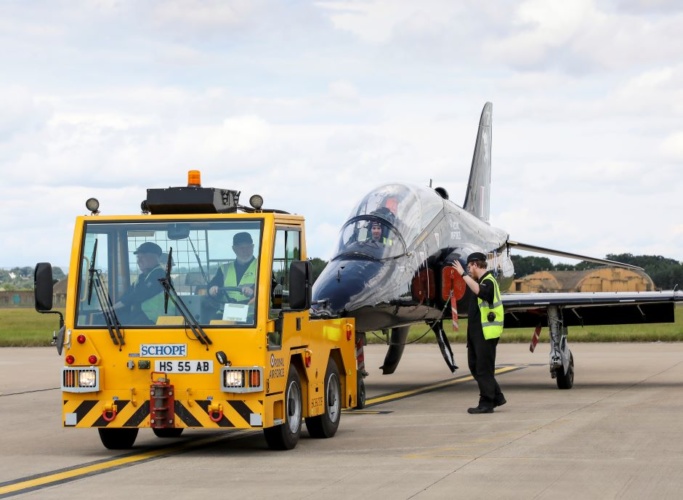
According to ULEMCo, Project ZeHyDA (Zero emission Hydrogen Demonstration for Airport applications) will convert a base aircraft tow tug vehicle to an electric hybrid running with a 100 per cent hydrogen combustion engine.
The project is ULEMCo’s first mobile application of zero-emission hydrogen engine technology announced by the company in 2019 when it was tested for static generators. The project will enable the engine to work with an electric drivetrain, and to be demonstrated as part of the Tees Valley Hydrogen Transport Hub in ground support vehicles.
Study to assess fuel cells for fire engines
Hydrogen ambulance set for London
“We are delighted to be able to build on the success of our 100 per cent hydrogen static genset engine with this mobile vehicle”, Amanda Lyne, managing director of ULEMCo said in a statement. “Airport ground support vehicles are yet another niche application that can benefit from decarbonisation using hydrogen, without the delay of building a nationwide hydrogen infrastructure.”
In parallel with the conversion activity, ULEMCo will perform laboratory testing of a large engine conversion for 7.5 tonne ground support trucks that also work at airports. The tests, being assessed in collaboration with Newcastle University, hope to show that an engine of this size can be configured to meet duty cycle requirements while delivering zero carbon emissions.
“Decarbonising transport requires an ambitious approach from industry, government and academia”, said Phil Blythe, Professor of Intelligent Transport Systems, Newcastle University and former Chief Scientific Adviser at the Department for Transport. “The University will bring its world-leading expertise to address the research questions and knowledge gaps arising from the introduction of hydrogen fuel at RAF Leeming and Teesside International Airport.”
Group Captain Maurice Dixon, RAF Leeming, added that Project ZeHyDA is a key element of the wider RAF Net Zero strategy and programme of activities, with lessons learned and recommendations set to be shared within the MoD.




Swiss geoengineering start-up targets methane removal
No mention whatsoever about the effect of increased methane levels/iron chloride in the ocean on the pH and chemical properties of the ocean - are we...